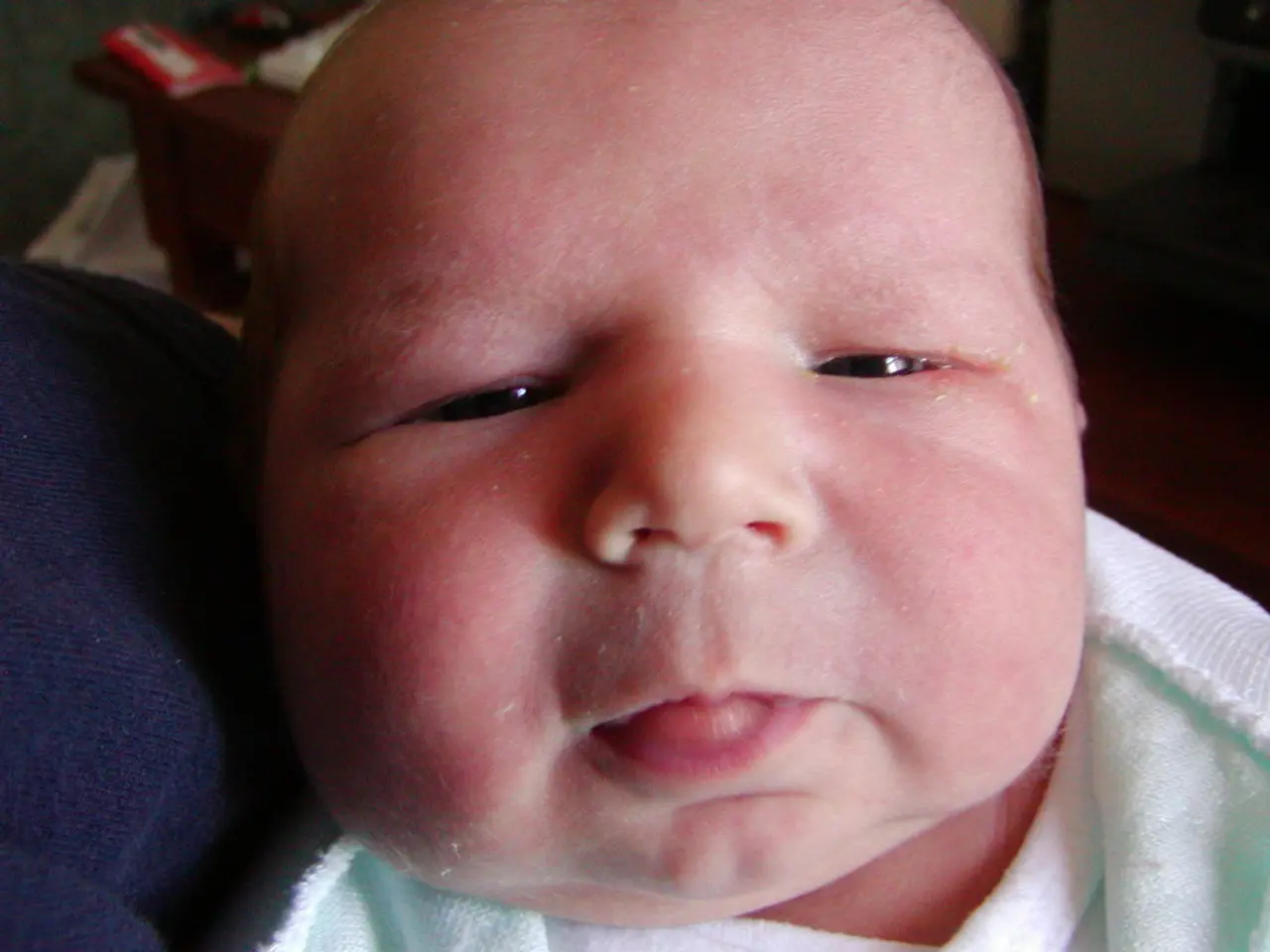Infants exhibit improved recall of significant events to others
In August 2025, a groundbreaking study was conducted at the Max Planck Institute for Cognitive and Neuroscience in Leipzig, shedding new light on memory development in infants. The study, titled "The self-reference memory bias is preceded by an other-reference bias in infancy," was published in the prestigious journal Nature.
Researcher Charlotte Grosse and her team discovered that 18-month-old infants tend to remember objects associated with others better than their own. This finding challenges the conventional understanding of memory development in infants, as it suggests that the concept of self is not fully established in infants before the age of two.
The study involved 18-month-old infants remembering foreign objects better. Many babies in the study remembered the puppet's objects better than their own, indicating that their memory systems are initially more responsive to objects and events linked to others.
This phenomenon reflects the gradual establishment of self-awareness, which usually emerges around this age but is not yet mature. During this period, toddlers are highly sensitive to social interactions and may encode memories linked to others more effectively due to the nascent self-other differentiation process. Their developing social and emotional skills, such as emerging empathy and recognition of others’ feelings, further support memory related to social contexts rather than personalized self-referential memory.
However, as the infant's sense of self is still forming at 18 months, this memory bias shifts over time. By later childhood, self-concept and self-recognition become more complex, and infants begin to prioritize memories that are relevant to themselves.
It's important to note that this does not mean infants have selfless personalities. Rather, it indicates that our concept of self is established later than previously thought. Grosse interprets the findings as a learning strategy about the world, suggesting that young babies observe others and learn from them.
This study offers valuable insights into the intricate workings of infant memory and the development of self-awareness. As research continues, we can expect to gain a deeper understanding of these crucial early stages of cognitive development.
The study's results indicate that the memory systems of 18-month-old infants are initially more responsive to objects and events linked to others, suggesting a preference for health-and-wellness related to mental health within their environment. As the infant's sense of self matures over time, this memory bias shifts towards self-concept and self-recognition, demonstrating the continuous development in science, particularly in the field of health-and-wellness and mental health.




